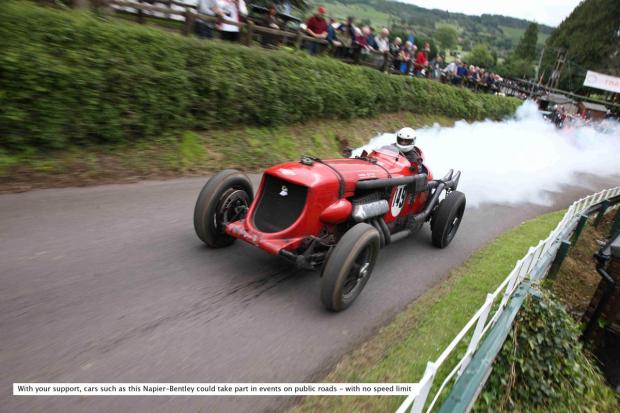
The law could be changed to allow competitive motor sport to take place on public roads due to a possible change in legislation which recently entered the consultation stage. The amendment to the Road Traffic Act could give local authorities the power to suspend speed limits and applicable road regulations, to be temporarily replaced with motor sport regulations.
It is currently possible to close roads, but not to suspend the Road Traffic Act.
As well as parades through city centres, the changes would allow events such as the Kop Hill Climb to allow non-road-legal competition cars to participate.
In order for the consultation to show the true weight of feeling from the automotive community, the Motor Sports Association is calling on all enthusiasts to respond to Government and lend their support to the campaign.
Ben Cussons, Chairman of the Royal Automobile Club Motoring Committee, said: "This is genuinely a once in a lifetime opportunity to change the law – we must not lose the chance."
The Channel Islands, the Isle of Man and Northern Ireland all presently allow motor sport events to take place on public roads.
In order to show your support for the proposed amendment, which is getting loads of support from the classic community, simply copy the following text and email it to msc@culture.gsi.gov.uk
Re: Proposal to Authorise Motor Sport Events on Public Roads Consultation

